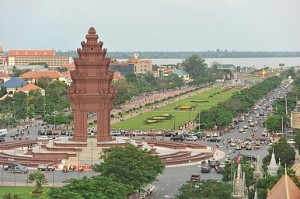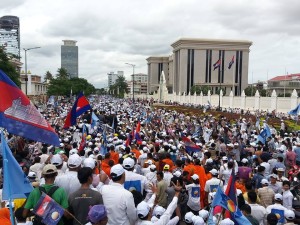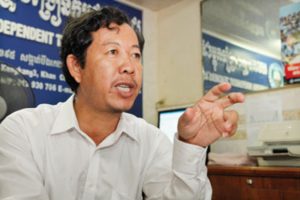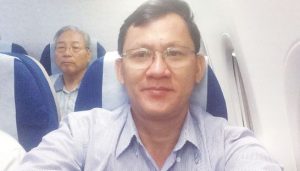ប្រឡងបាក់ឌុបឆ្នាំនេះជាប់៦២,១៨ភាគរយ ហើយក៏មានក្មួយខ្ញុំម្នាក់ដែរ។ និយាយដោយត្រង់ចង់សួរថា តើក្រសួងអប់រំរៀបចំយ៉ាងម៉េចចំពោះអ្នកមិនជាប់ជាង៤៧ភាគរយទៀត? អោយពួកគេរៀនឌុប? អោយពួកគេធ្វើចំណាកស្រុុកទៅស្រុកថៃ? ឬអោយពួកគេដើរទាត់ខ្យល់? ។ល។និង។ល។ជាដើម។ អ្នកជាប់ក្រៅពីមិនបានរៀនឌុប ក៏មិនប្រាកដថាគេអាចគេចផុតពីគន្លងអ្នកធ្លាក់ដែរ។ តែអ្វីដែលហួសចិត្តគឺពិភពលោកគេមិនអនុវត្តការប្រឡងជាប់ធ្លាក់(exam)ដើម្បីវាស់សមត្ថភាពកូនសិស្សទៀតទេ តែគេប្រើវិធីស្ទាបស្ទង់កំរិតព្យាយាម(assessment) របស់សិស្សវិញ។ បើកូនសិស្សព្យាយាមសិក្សាពេញលេញ គឺពួកគេមិនដែលធ្លាក់ទេក្នុងរយះពេល១២ឆ្នាំ។ ហើយប្រទេសប្រជាធិបតេយ្យ គេមិនយកការប្រឡងជាប់ធ្លាក់ដើម្បីវាស់ចំណេះដឹងកូនសិស្សទេ ព្រោះគេជឿទៅលើផ្នត់គំនិតព្យាយាម(growth mindset) ជាងផ្នត់គំនិតឆ្លាតពីកំណើត(fixed mindset)។ លើសពីនេះ កម្ពុជាមិនអាចមានចិរភាពខាងការអភិវឌ្ឍន៌ទេ បើរដ្ឋាភិបាលនៅតែប្រើគោលនយោបាយបែបសង្គមបិទ(not an open society)និងការរើសអើង(exclusive)។ យើងអាចពិនិត្យទៅលើគោលនយោបាយរើសអើង(exclusive)និងគោលនយោបាយមិនរើសអើង(inclusive) តាមកត្តាខ្លះៗដូចតទៅនេះ៖
- នយោបាយដឹកនាំប្រទេស=គណបក្សនយោបាយដឹកនាំរដ្ឋាភិបាលកំណត់គោលនយោបាយដែលមានតែខ្លួនម្នាក់គត់ដែលអាចរក្សាសន្តិភាពនិងការអភិវឌ្ឍន៌ដោយចាត់ទុកក្រុមជំទាស់ដែលមានកំឡាំងប្រហាក់ប្រហែលខ្លួនថាជាក្រុមបំផ្លាញសន្តិភាពនិងការអភិវឌ្ឍន៌ ព្រមទាំងខិតខំអុកឡុកអោយក្រុមនេះរលាយខ្លួនតែម្តង។
- នយោសេដ្ឋកិច្ចទីផ្សាសេរីមូលធនិយមបែបបក្សពួកនិយម=ដោយដំណើរនយោបាយសេដ្ឋកិច្ចបែបទីផ្សាសេរីតែមានតែបក្សពួកជំនិតៗទេដែលអាចប្រកួតប្រជែងនិងអាចដេញថ្លៃបាន។
- ការរៀបចំការបោះឆ្នោតបែបអសកល=ការរៀបចំការបោះឆ្នោតមួយដែលបន្សល់ទុកអ្នកបោះឆ្នោតរាប់លាននាក់មិនបានចូលរួមដូចជាមិនសំរួលអោយខ្មែរនៅក្រៅប្រទេសអាចចូលរួមបាន។
- ប្រព័ន្ធអប់រំបែបចង្អៀតចង្អល់=គួរយកផតហ្វូលីអូ១២ឆ្នាំដែលកូនសិស្សរៀនសូត្រដើម្បីវាស់កំរិតចំណេះដឹងជាប់ធ្លាក់ជាជាងយកការប្រឡងតែពីរថ្ងៃជារង្វាស់រង្វាល់។
- ពិធីកម្មរដ្ឋ=រាល់ការរៀចបំវេទិការផ្សេងៗ រមែងអោយអ្នកបំរើរាស្រ្តអង្គុយខ្ពស់ជាងរាស្ត្រម្ចាស់ប្រទេស។ ការធ្វើដំណើររបស់អ្នកមានអំណាចរមែងអុកឡុកផ្លូវចរាចររបស់រាស្ត្រ។ កំរាលព្រំក្រហមគួរអោយរាស្ត្រជាអ្នកដើរលើវិញ មិនមែនសំរាប់អ្នកបំរើរាស្ត្រទេ។ រាល់សមិទ្ធផលនានាគឺជាសមិទ្ធិផលរបស់រាស្ត្រ មិនមែនរបស់អស់លោកអ្នកមានអំណាចដែលចិញ្ចឹមជីវិតដោយប្រាក់បៀរ៌វត្សន៌ដែលរាស្ត្រប្រគល់អោយទេ។ សិស្សដែលទទួលបានពិន្ទុអាដ៏ច្រើនសន្ធឹកសន្ធាប់គឺចំនួន៤០៥នាក់ឆ្នាំនេះនឹងត្រូវទទួលរង្វាន់ជាតិ មិនមែនរង្វាន់ពីអ្នកបំរើជាតិជានីតិបុគ្គលទេ។
- គម្លាតសង្គមនិងសង្រ្គាមស្មារតី=គម្លាតសេដ្ឋកិច្ចគ្រួសារនៃប្រជាពលរដ្ឋខ្មែរនៅតែជាសាហេតុធំដែលមានការប្រឆាំងគ្នារវាងអ្នកមាននិងអ្នកក្រ អ្នកក្រុងនិងអ្នកជនបទ ហើយសង្រ្គាមស្មារតីទាំងនេះរមែងនាំទៅរកហានីយភ័យសង្គមខ្ពស់។
——-

Grade 12 high school exam this year passed 61.18% including one of my nephews. Actually, I want to question Ministry of Education on how they plan to help those more 47% failed students? Planning them to learn one year more? To migrate to work in Thailand? Or to be unemployed? Except no need to relearn again, those passed students shall tread in the same path as those failed students. To what I am so obsessed about is that the world is not using this method of exam to measure students’ competency any more, the world has used assessment method indeed. If students have used all perseverance during these 12 years, they shall be surely passed. And democratic countries don’t use exam as parameter to measure students’ competency because they do believe in growth mindset, not the fixed mindset.
More than this, Cambodia shall not afford sustainable development as government has pursued policy of “not an open society” and “exclusive”. We can investigate the policy of “exclusive” and “inclusive” with following indicators:
- Governing Politics=Government-led party has affirmed its policy by stating that only this party can maintain peace and development of the nation by excluding key opposition party with accusation that this party is a key actor of destroying peace and development; and put much effort to curb this party aiming to dissolve it eventually.
- Planned Economy of Free Market of Crony Capitalism=to conduct free market economy but only close patrons and loyalists can run businesses and present a bid.
- Absence of Universal Suffrage Election=election that has excluded millions of voter unable to access to it, for instance the excluding of Cambodians overseas to register to vote and to vote.
- Fixed Mindset Education System=they should take students’ portfolio during their study of 12 years as a parameter to measure their growth and knowledge, not these few days exam.
- Government’s Rites/Functions=all public forums have always arranged the people’s servants to sit higher than the people. Each trip of the people’s servants has always interrupted the traffic of the people. All public goods are belonged to the people, not the people’s servants who are making a family living from salary afforded to offer by the people. Those excellent grade A students should receive the honour of national gift, not the gift of any people’s servant as an individual citizen.
- Social Gap and War of Spirit=family economy and social gap have remained a main cause of conflicts between the rich and the poor, the city dwellers and the farmers, and these war of spirit has become source of high social crisis for Cambodia.
=======================================


 out inputs because they don’t have much inputs to be thrown. We must agree that through this 25 years, human resource has hugely built within the government (government here refers to pragmatic collective body being inclusive of public servants, civil society member activists, and members of opposition political parties etc.) By looking from outside political behaviour, CNRP might at least take model of British Westminster System to its leadership core as this style is not only practised in those commonwealth states but also most democratic states. By looking at their key policy stating that CNRP stands on national reconciliation and unity by eradicating colouring each other, discrimination and patronage system through ameliorating following 6 core principles as you can read them
out inputs because they don’t have much inputs to be thrown. We must agree that through this 25 years, human resource has hugely built within the government (government here refers to pragmatic collective body being inclusive of public servants, civil society member activists, and members of opposition political parties etc.) By looking from outside political behaviour, CNRP might at least take model of British Westminster System to its leadership core as this style is not only practised in those commonwealth states but also most democratic states. By looking at their key policy stating that CNRP stands on national reconciliation and unity by eradicating colouring each other, discrimination and patronage system through ameliorating following 6 core principles as you can read them 

